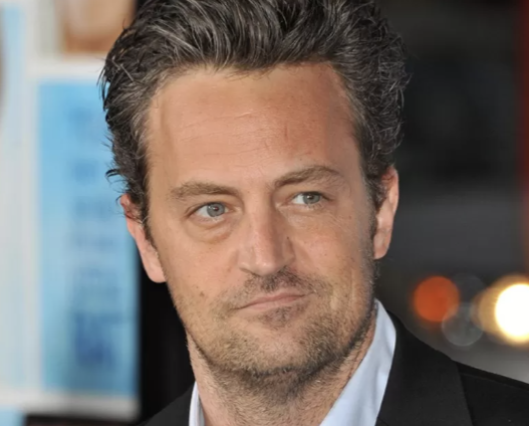Five individuals have been charged in connection with the drug-related death of actor Matthew Perry last year, according to police. The charges include two doctors and Perry’s personal assistant.
The investigation, which began in May, revealed a “broad underground criminal network” involved in distributing significant amounts of ketamine. Perry, 54, died at his Los Angeles home in October. A post-mortem examination found a high concentration of ketamine in his blood, concluding that the “acute effects” of the drug were the cause of his death.
“These defendants took advantage of Mr Perry’s addiction issues to enrich themselves,” US Attorney Martin Estrada said on Thursday. “They knew what they were doing was risking great danger to Mr Perry, but they did it anyway.”
Three of the defendants, including Matthew Perry’s personal assistant, have already pleaded guilty to drug charges. The remaining two, a doctor and a woman known as “The Ketamine Queen,” were arrested on Thursday, according to the justice department.
Ketamine, a powerful anesthetic, is used for treating depression, anxiety, and pain. Friends and associates of Perry, who was a lead actor on NBC’s “Friends,” informed the coroner’s investigation that he was undergoing ketamine infusion therapy.
However, his last session occurred more than a week before his death, and the medical examiner determined that the high levels of ketamine found in Perry’s system could not have originated from the infusion therapy due to the drug’s short half-life. The levels detected were equivalent to those used in general anesthesia.
The federal indictment outlined a complex drug purchasing scheme allegedly responsible for Perry’s death. Prosecutors claim that Perry’s assistant, Kenneth Iwamasa, collaborated with two doctors to supply over $50,000 (£38,000) worth of ketamine to Perry in the weeks leading up to his death.
Authorities argue that those involved exploited Perry’s well-known substance abuse issues for profit. One of the doctors, Salvador Plasencia, is alleged to have texted, “I wonder how much this moron will pay.”
The indictment accuses Plasencia, 42, of administering ketamine to Perry “outside the usual course of professional practice and without a legitimate medical purpose.” He also allegedly instructed Iwamasa on how to administer ketamine to Perry without proper safety measures.
In the four days preceding Perry’s death, Iwamasa reportedly administered at least 27 shots of ketamine, despite earlier warnings from Plasencia about the risks of large doses. Plasencia had advised against such doses after a previous incident where Perry experienced adverse effects. Despite this, the doctor left several vials of ketamine with Perry and Iwamasa.
The case also involves Jasveen Sangha, known as the “Ketamine Queen,” who is accused of supplying the drug to Plasencia with the help of co-defendants Erik Fleming and Dr. Mark Chavez. Chavez, Fleming, and Iwamasa have all pleaded guilty.
Sangha and Plasencia appeared in Los Angeles court on Thursday afternoon and both pleaded not guilty, according to the U.S. Department of Justice. Their tentative trial dates have been set for October. Plasencia was granted a $100,000 bond, while Sangha was ordered held without bond.
Prosecutors allege that the defendants tried to conceal their actions after Perry’s death. Sangha is said to have texted another suspect instructing them to “delete all our messages,” while Plasencia is accused of falsifying medical records.
Drowning was listed as a contributing factor in Perry’s accidental death, along with coronary artery disease and the effects of buprenorphine, a drug used to treat opioid use disorder.
At the height of his fame, Perry struggled with addiction to painkillers and alcohol and underwent multiple rehabilitation treatments. In his memoir, *Friends, Lovers, and the Big Terrible Thing*, he recounted his battle with substance use and revealed that he could not remember three years of filming *Friends* due to his struggles with drink and drugs.
Despite several attempts at treatment, Perry noted in his memoir that he had been mostly sober since 2001, though he experienced about 60 or 70 setbacks.



